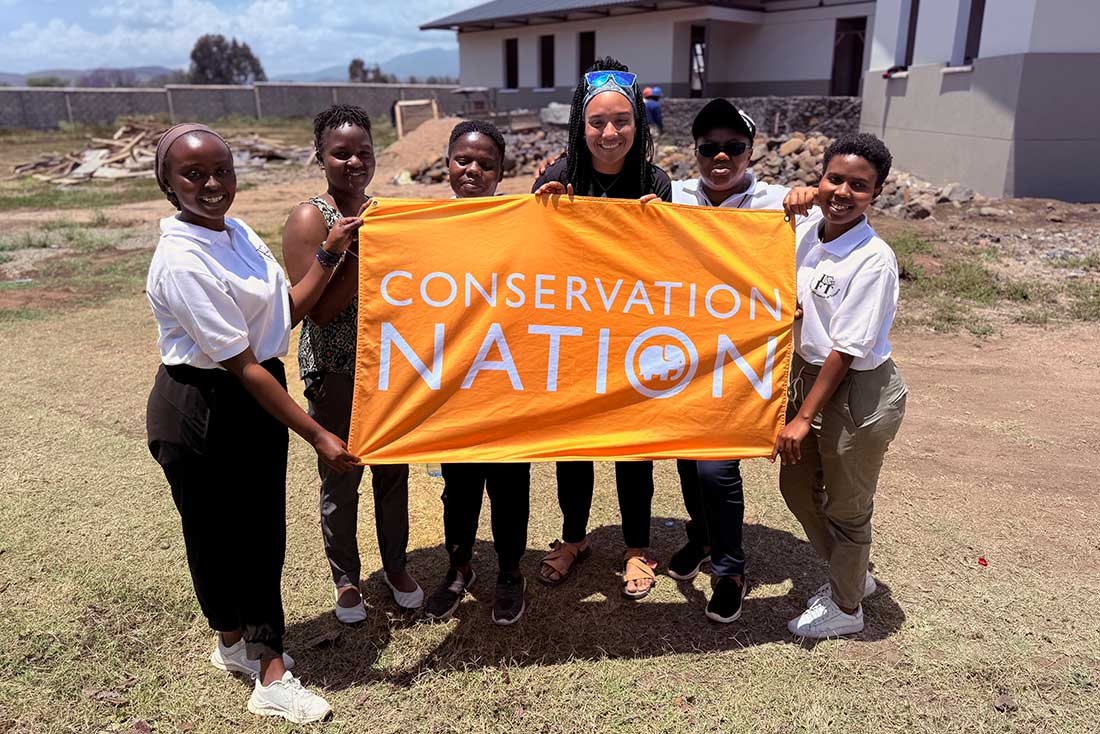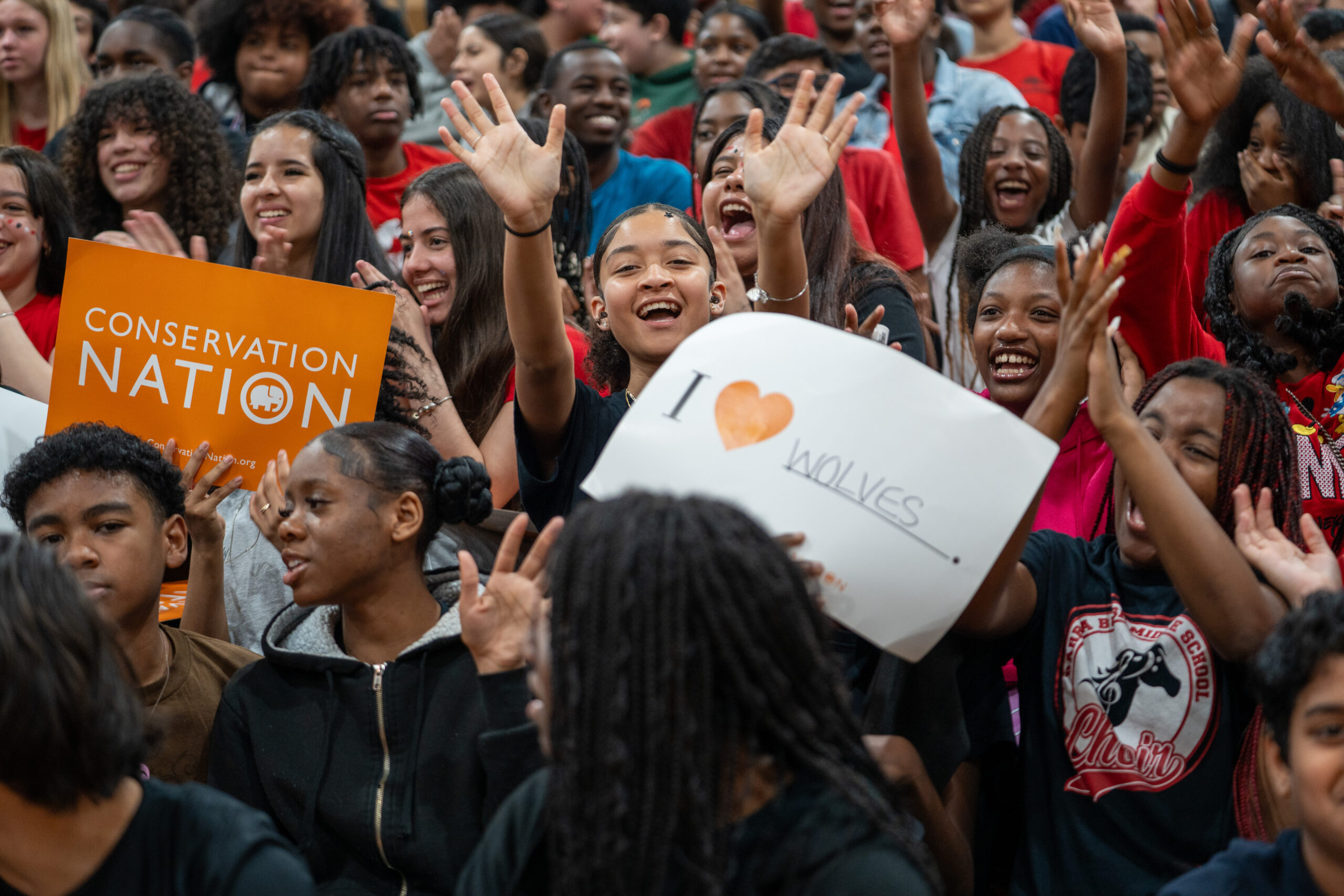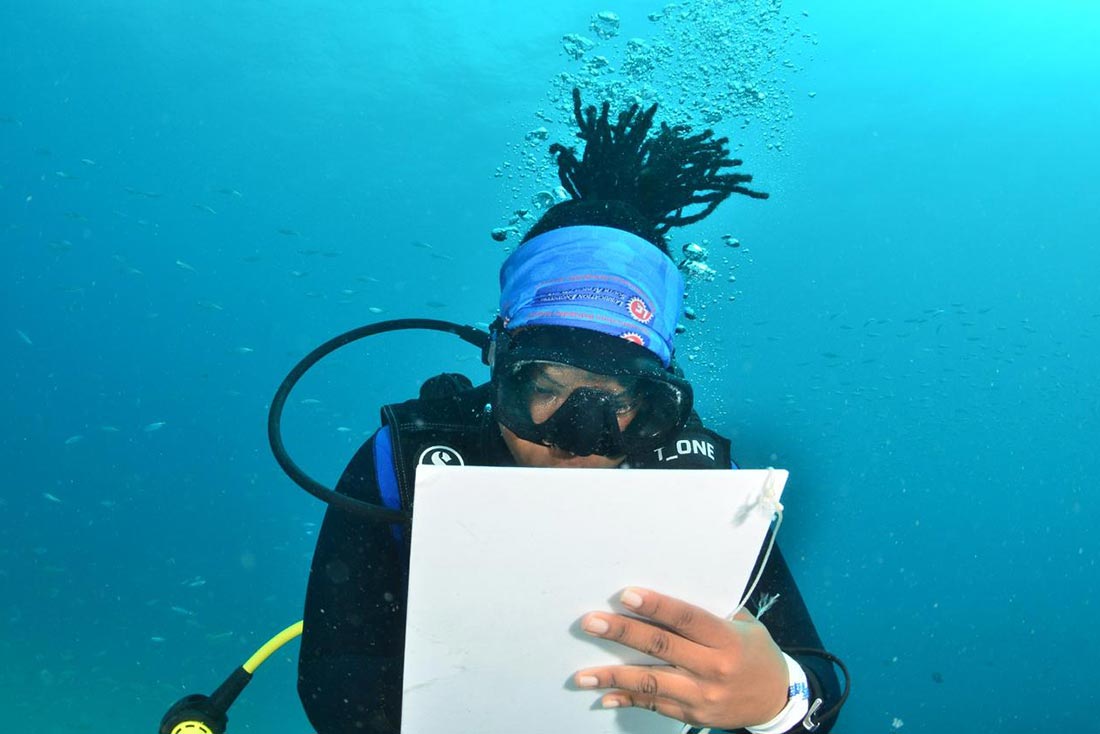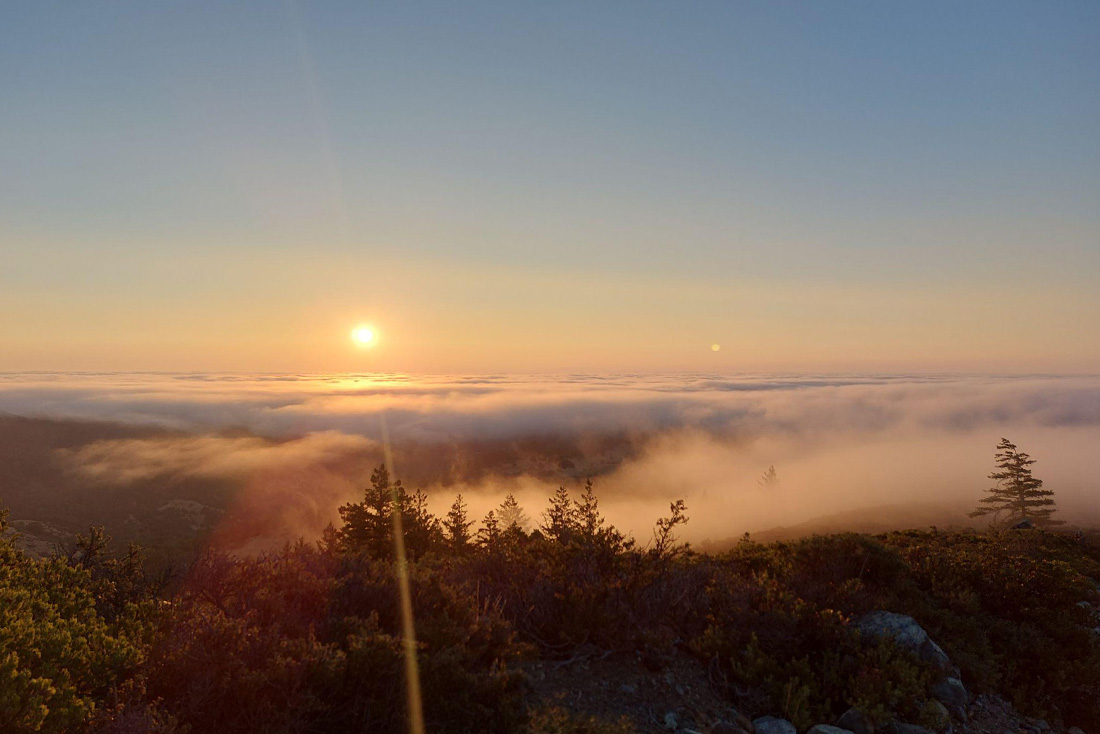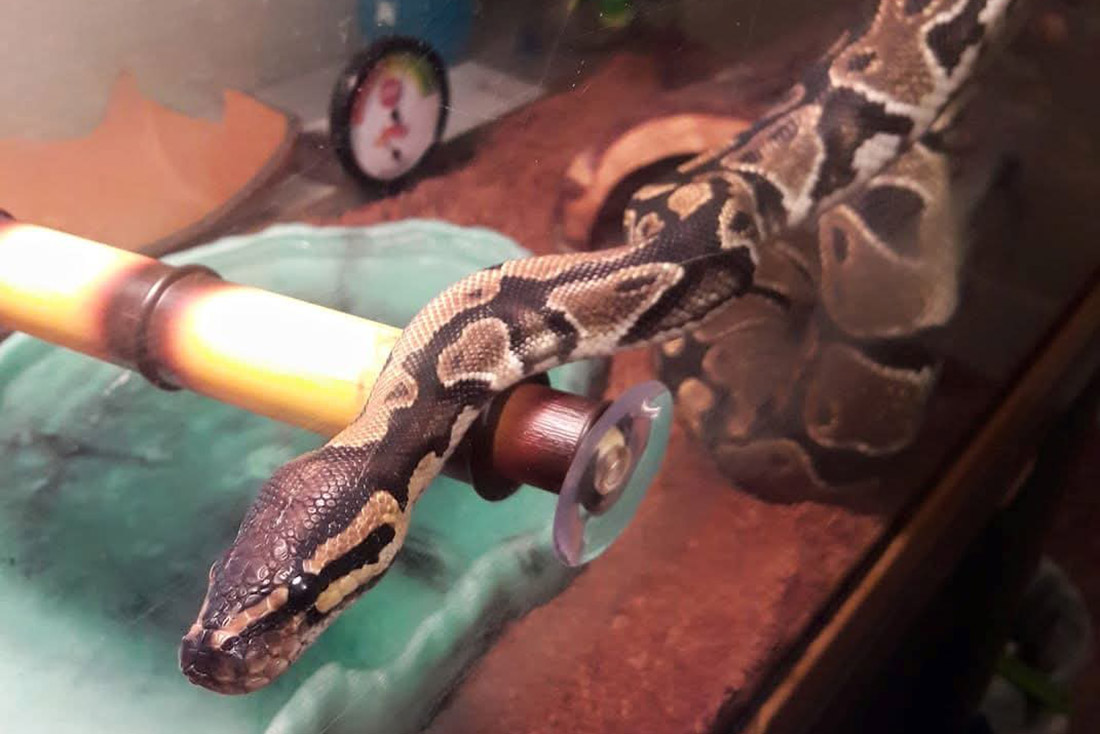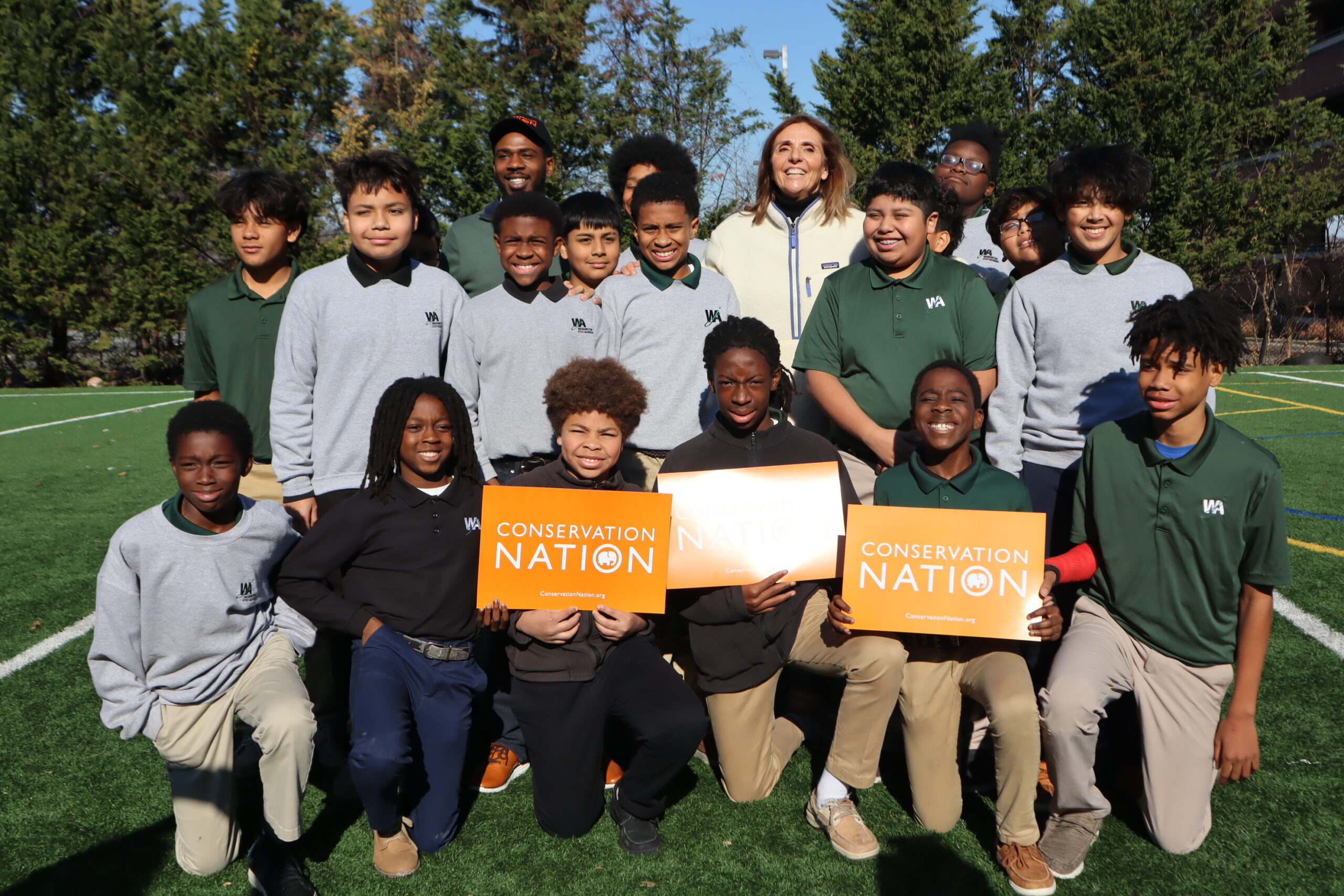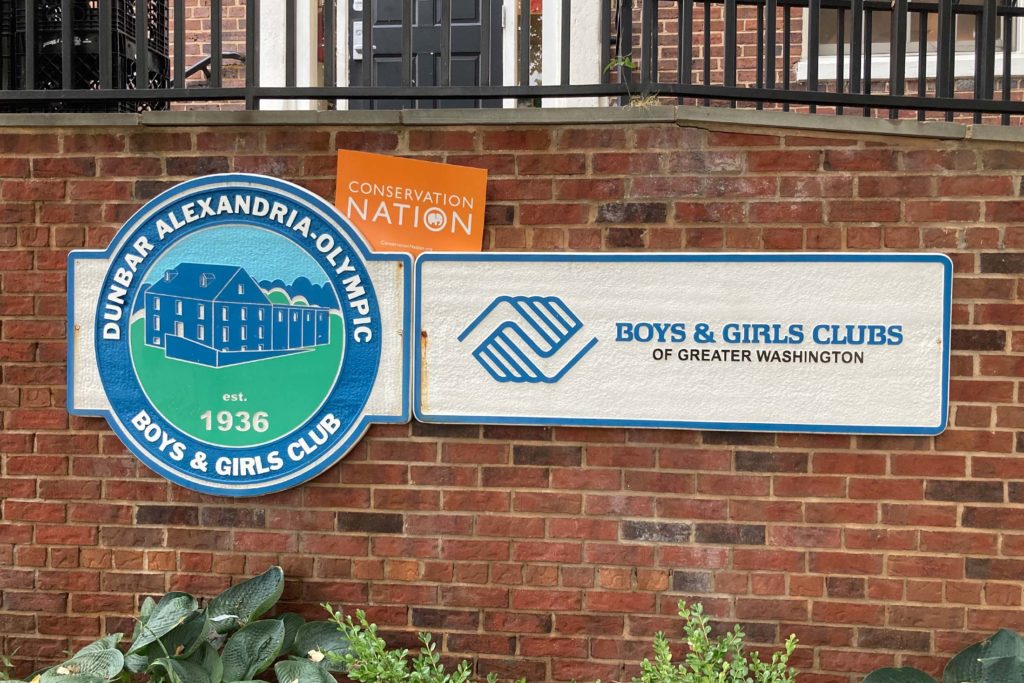The Conservation Nation team recently began the important relation-building process with our communities. Our first step? Listening to those we plan to work with first – youth in the DC metro area, conservationists, and educators.
Conservation Nation’s Education and Community teams were thrilled to visit students for focus groups at Roosevelt High School in Washington, DC’s Ward 4 and The Dunbar-Alexandria Boys and Girls Club, in Alexandria, VA. We discussed their baseline knowledge of conservation and their career goals and aspirations. They reported that while they don’t envision people who look like them as conservationists, overwhelmingly described as white, they are interested in conservation topics and careers. Not surprisingly, local environmental issues like water and air pollution and safe, green spaces to spend time were especially important to students. These focus groups provided key insights as we create culturally relevant programs that highlight diverse conservationists and inspire youth to pursue conservation careers. We look forward to forging partnerships with more high schools and youth organizations in the DC metro area in the upcoming months.
On the professional conservation side, we heard from conservationists through a survey that captured their personal stories and professional needs. Their feedback reinforced the tough barriers many emerging conservationists face: over 80% of them took unpaid internships or volunteer positions while pursuing their career, with almost half of them working for free for over a year. Conservationists reported facing serious challenges including competitive job markets, low pay, and inadequate opportunities for professional growth. But they also expressed optimism for the future thanks to the passionate people within their fields and the positive impact that we can collectively make for wildlife. This feedback is critical as we work to break barriers and develop grants and innovative collaborations that support conservationists from traditionally underrepresented groups.
We’re also listening to our education communities. We wanted to know about professional development gaps in conservation education and gather information about youth programming in nonformal settings like zoos, state parks, and museums. We found that many organizations host conservation-based programs for teens, but that very few lead career preparation programs that involve paid internships, youth grants, or tutoring services. We found a big appetite for educators to receive quality training in E-STEM (Environmental Science, Technology, Engineering, Math) and that learning from successful conservationists is highly desirable. In October we host a vendor booth at the North American Association of Environmental Educators (NAAEE) virtual conference. There we will speak one-on-one with educators from across the country to gain new ideas, fresh perspectives, and opportunities to collaborate. And now that school is in session, we are excited to engage with classroom teachers in the DC-metro area through additional focus groups and surveys.
We know that Conservation Nation’s success rides on our community engagement. As we launch into our exciting new future, we are listening closely to the voices of those we intend to collaborate with, serve, support, and uplift. We can’t wait to hear from you.

